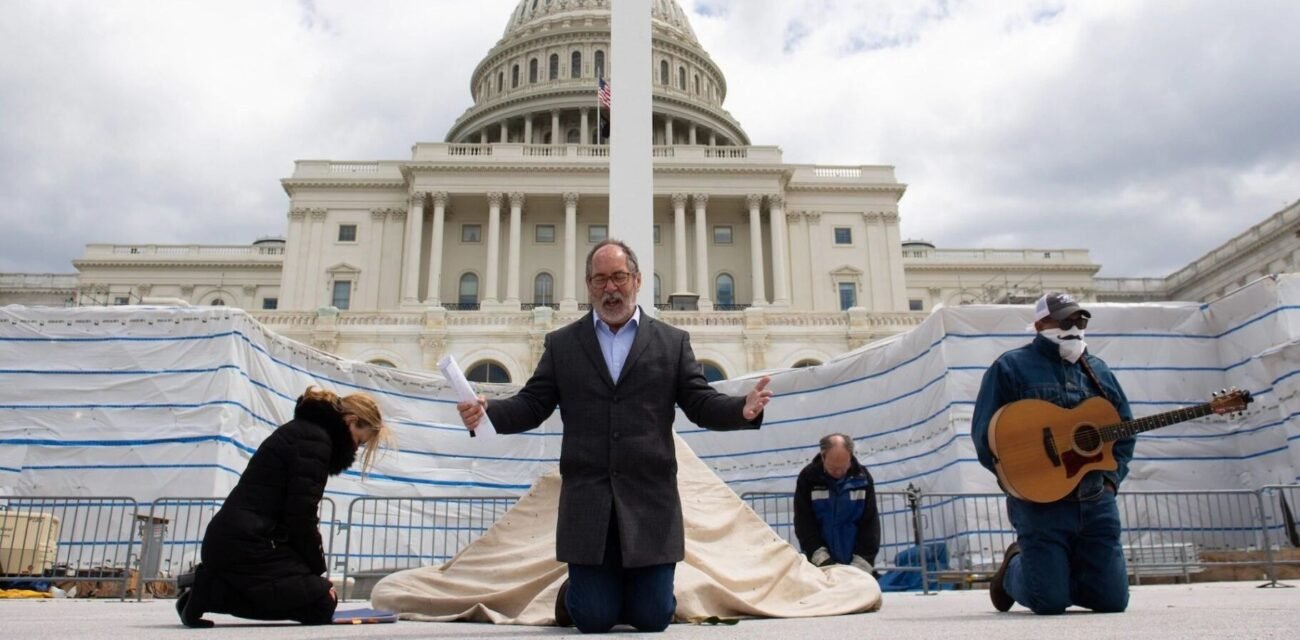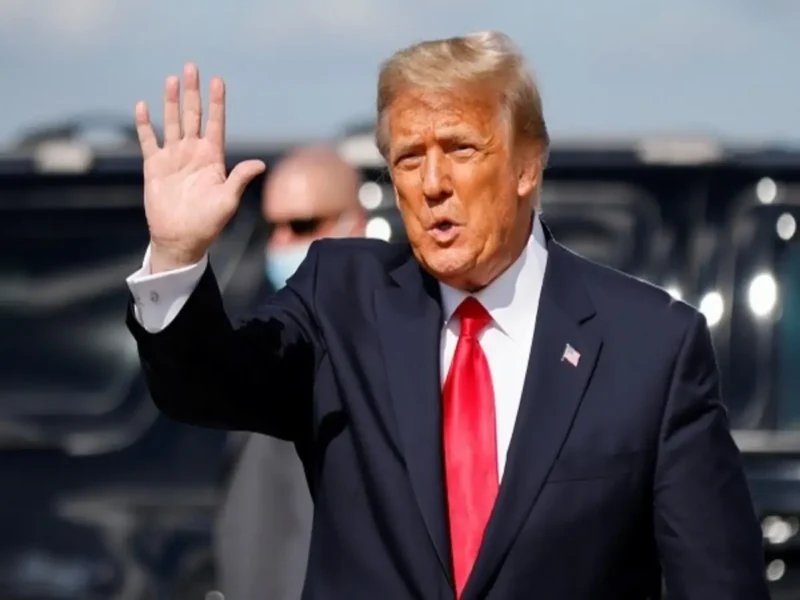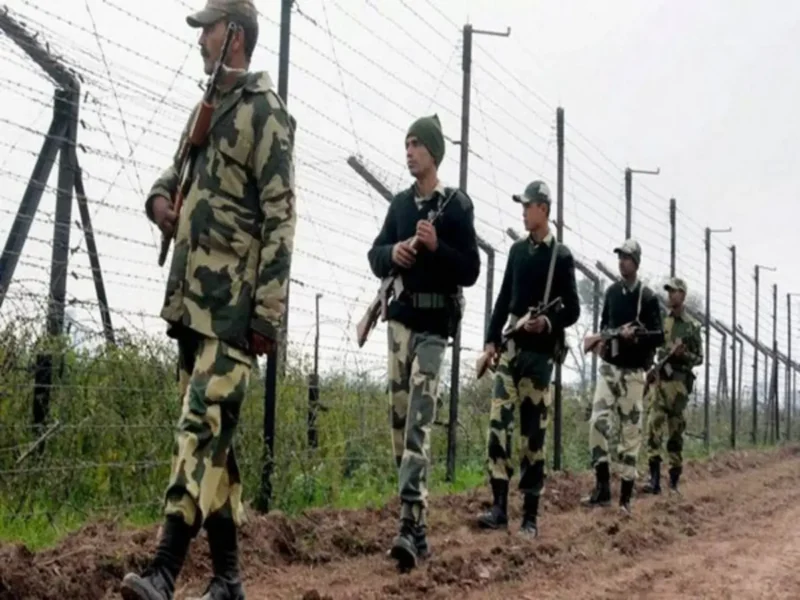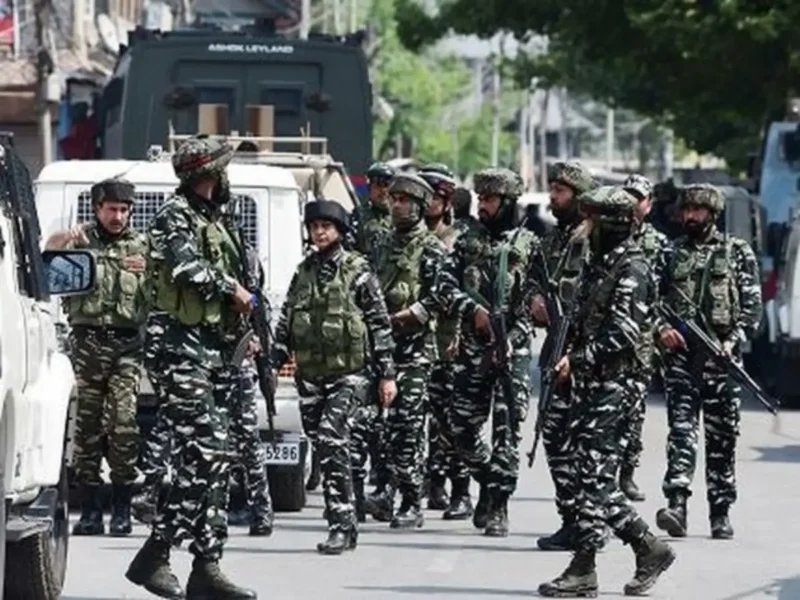
Attorney Harmeet Dhillon Fights for Reverend Wishing to Conduct Good Friday Prayer Vigil at Cordoned-Off Capitol Building
Reverend Patrick Mahoney, director of the Christian Defense Coalition, has sued Vice President Kamala Harris, House Speaker Nancy Pelosi, and Capitol Building police in order to be able to conduct a Good Friday prayer vigil on the Lower Western Terrace of the Capitol Building. Mahoney is supported by the Center for American Liberty, founded in 2019 by Indian American attorney Harmeet Dhillon, who is representing Mahoney in his lawsuit. (photo via Twitter)
By SUNITA SOHRABJI/India-West Staff Reporter
Indian American attorney Harmeet Dhillon is representing Reverend Patrick Mahoney, director of the Christian Defense Coalition, who has sued Vice President Kamala Harris, House Speaker Nancy Pelosi, and the Capitol Building Police Board in order to be able to conduct a Good Friday prayer vigil on the Lower Western Terrace of the Capitol Building.
The suit was filed March 30, in U.S. District Court for the District of Columbia. Also named in the suit is Karen Gibson, Sergeant of Arms and Doorkeeper for the Senate and chairperson of the Capitol Police Board.
Dhillon is the founder of the Dhillon Law Group in San Francisco; she also founded the Center for American Liberty in 2019, to offer pro-bono services in First Amendment violation cases.
Mahoney is an ordained minister in the Reformed Presbyterian Church. Good Friday occurs this year on April 2. The plaintiffs have asked the court to issue an order requiring Capitol Police to issue a permit to allow Mahoney to hold his prayer vigil on the Lower Western Terrace.
Mark Meuser, an attorney with the Dhillon Law Group, told India-West that Mahoney has held a Good Friday vigil almost every year for the past 30 years at the Lower Western Terrace of the Capitol Building. The Reverend has audiences of varying sizes: sometimes, just five people attend, at other times, more than 100 people pray together, said Meuser.
The location has traditionally been a site for free speech activities, and conveniently located so that members of Congress can join in the prayer vigil if they wish, he said.
Last year, amid shelter-in-place orders at the height of the COVID-19 pandemic, Capitol Police permitted Mahoney to hold a prayer vigil at the contested spot. But this year, Mahoney was denied a permit. He was offered another site, near a statue of Ulysses S. Grant, but declined to accept as it was too far away from the Capitol Building and would thus deter lawmakers from joining in the prayer vigil.
“If ever there was ever a location in need of divine intervention, of God’s favor and wisdom, it would be the U.S. Capitol where legislators from across the country gather to pass laws that have a profound impact on virtually every aspect of our lives,” said Dhillon in a press statement. “Denying a minister and faithful parishioners the ability to pray outside the U.S. Capitol is unfathomable and violates First Amendment guarantees for traditional public forums.”
On Jan. 6, 2021, a violent mob — supporters of former President Donald Trump — stormed the Capitol Building, pushing past barricades and police and breaking windows to enter the House and Senate chambers in an attempt to disrupt the formal counting of Electoral College votes which declared Joe Biden the next president. Four protestors and one police officer, Brian Sicknick, were killed in the riot.
In the days that followed, four miles of security fencing were erected around the Capitol Complex, the Supreme Court, and the Library of Congress. The fencing is to remain for an indeterminate period of time. Congressional members on both sides of the aisle have called for the fencing to be removed, noting it was never intended to be a permanent security measure.
“The national security concerns are over two months old, and should not have any bearing on constitutional rights,” Meuser told India-West, adding there have been no assurances as to when the area will reopen.
The lawsuit notes that members of Congress and their staff, the media, and vendors go freely in and out of the fenced area. Mahoney alleged in the lawsuit that ministers have been given access to Capitol grounds, yet he has not.
“The defendants’ blanket denial of the permitting processes on a traditional public forum is additionally impermissible because they act as a prior restraint on speech,” stated the plaintiffs in the lawsuit.
“In closing the sidewalks and public areas around the Capitol, including the Lower Western Terrace Plaintiff seeks to utilize, Defendants have effectively created a no-speech zone around the nation’s Capitol. Defendants prevent any First Amendment activities on/in these areas, even though no specific threat to the Capitol has been identified in justification,” stated the plaintiffs.
“The ‘People’s House,’ as the U.S. Capitol Building is so rightly called, must be a place where all Americans are afforded the right to come and peacefully celebrate and express their First Amendment rights,” Mahoney said in a press statement. “Tragically, those rights and freedoms are being denied and prohibited.”




